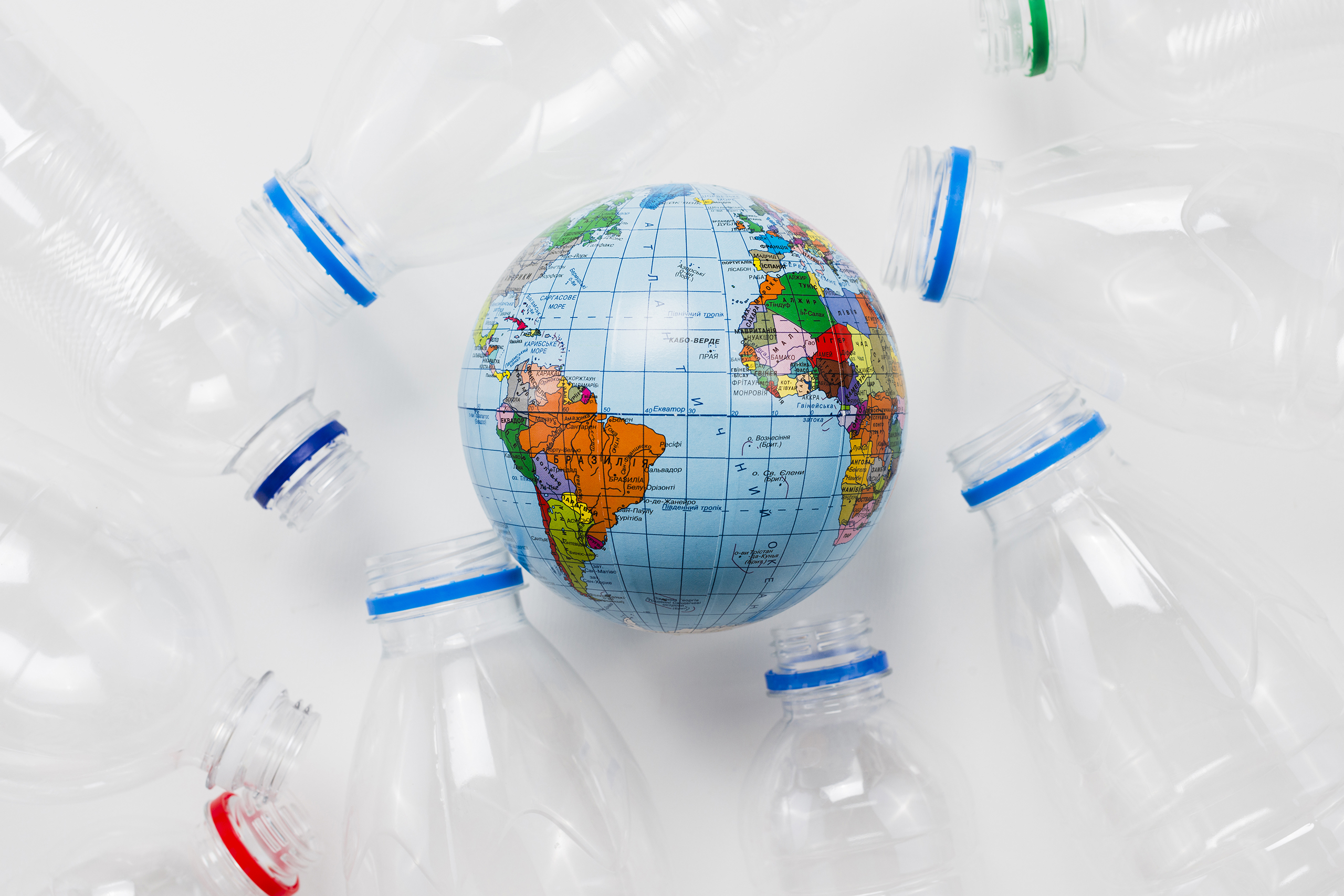Take a look around you, we are surrounded by plastics. From our morning toothbrush to our nighty-night light switch, we encounter plastics. It is hard to imagine what our lives would be like without plastics. Since the invention of the first fully synthetic plastic Bakelite by Leo Bakeland in 1907, plastics have taken a whole new dimension and become indispensable in our lives. While plastics are ubiquitous in our lives, we cannot ignore the negative impacts they have on our environment. It is estimated that 8.3 billion metric tons of plastics has been produced since the 1950’s and more than 6.3 billion metric tons has become plastic waste¹. Out of the 6.3 billion metric tons of plastic waste, only nine percent has been recycled and the rest is accumulating in landfills or breaking down into smaller fragments and ends up in the oceans causing harm to birds, marine animals, and fish.
It is obvious that plastic waste is a huge environmental concern. However, demonizing plastics will not reduce their impact on our environment. Plastics are neither good nor bad and it is the responsibility of the producers and users of such materials to ensure proper end-of-life disposal/repurpose options are taken. Instead of conversation, focus on designing new sustainable plastics, development of recycling technologies, and building a circular economy for plastics is more positive in reducing the negative impacts of waste plastics on environment.
¹National Geographic Society, December 20, 2018 issue
